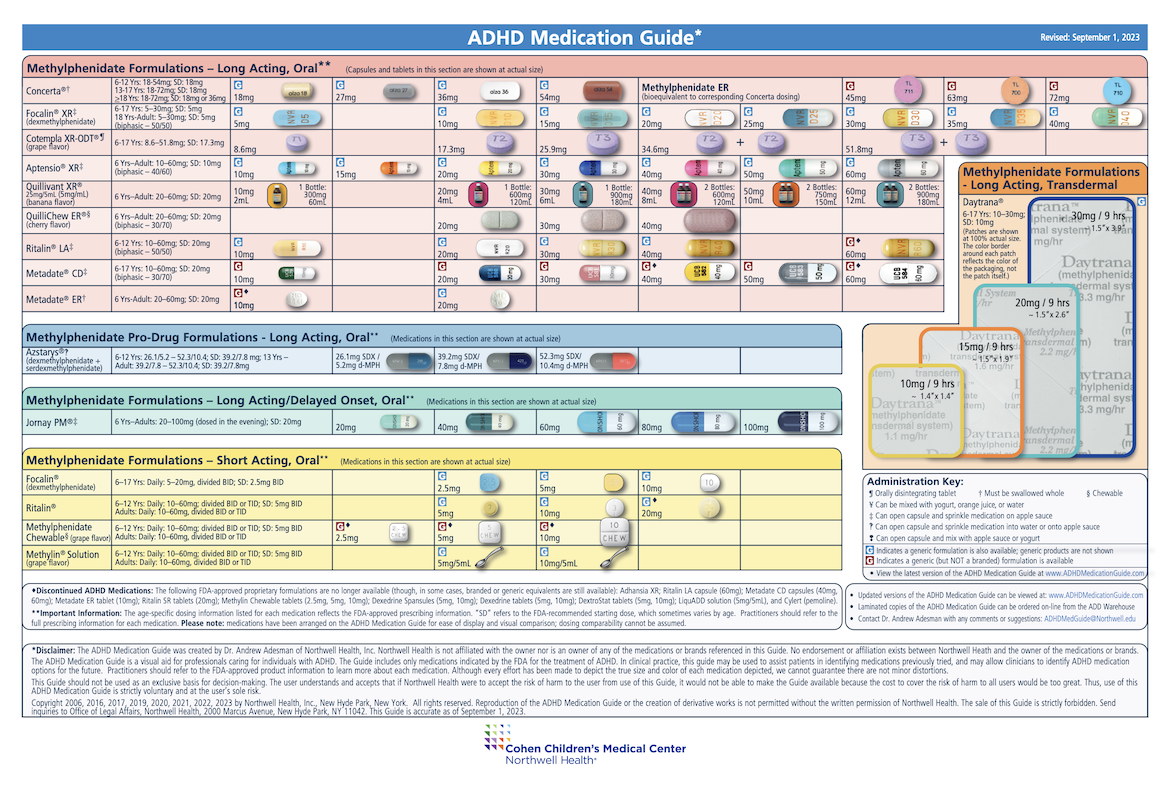Medication Management Programs for Safe Mental Health Treatments
Medication Management Programs for Safe Mental Health Treatments
Blog Article
The Benefits of Individualized ADHD Treatment Plans for Better Results
The execution of individualized ADHD therapy plans has emerged as a crucial approach in enhancing therapeutic end results for people influenced by this problem. By identifying the one-of-a-kind manifestations of ADHD in each individual, these tailored interventions promote greater involvement and motivation, inevitably causing a lot more efficient coping approaches. This tailored approach not just addresses academic and work challenges but likewise cultivates enhanced social partnerships and overall top quality of life. The true level of these advantages elevates vital concerns regarding the specific elements that add to long-lasting success and how they can be optimized for diverse populaces.
Comprehending ADHD Variability
Although Attention-Deficit/Hyperactivity Disorder (ADHD) is often perceived as a single problem, its indications can differ significantly among people. Sex distinctions likewise play a function, as men are more frequently identified with ADHD and typically display extra obvious signs, whereas women may present with less obvious inattentiveness.
Additionally, individuals with ADHD may experience a spectrum of psychological and behavioral obstacles, such as anxiousness or opposite defiance, that can make complex diagnosis and treatment. The communication of these variables can cause diverse experiences of ADHD, necessitating a nuanced understanding of the disorder. It is likewise worth noting that ADHD can present differently across various social contexts, affecting just how signs and symptoms are acknowledged and attended to. This understanding highlights the value of acknowledging ADHD as a complex problem, which calls for customized strategies to therapy that think about the unique requirements and experiences of each individual.
Key Parts of Personalization
Individualized ADHD treatment strategies are based in numerous key parts that guarantee effective monitoring of the condition. First, a detailed analysis is critical, entailing standardized ranking ranges, meetings, and behavior monitorings. This complete evaluation enables clinicians to comprehend the individual's distinct symptoms, staminas, and obstacles.
Second, the participation of several stakeholders, including parents, teachers, and the person, contributes to an all natural view of the individual's requirements. Cooperation promotes a supportive atmosphere that can adjust to the person's context and way of life.
Third, therapy strategies should be versatile and versatile, allowing for adjustments based on recurring responses and the individual's progressing demands. This flexibility allows the integration of various therapeutic methods, such as behavioral interventions, psychoeducation, and medication administration.
Additionally, social and contextual variables have to be considered. Identifying the individual's background, values, and preferences makes certain that the treatment matters and respectful.
Finally, normal follow-ups and analyses are important to keep an eye on progression and make required modifications. By concentrating on these vital components, customized ADHD treatment strategies can significantly improve the efficiency of treatments, resulting in enhanced results for people with ADHD.
Enhanced Interaction and Inspiration
To efficiently advertise boosted involvement and motivation in individuals with ADHD, it is vital to include approaches that reverberate with their passions and staminas. Individualized treatment strategies that line up with a person's interests can bring about boosted involvement in restorative tasks, fostering a sense of ownership and enthusiasm for the process.
Making use of interactive and innovative strategies can additionally substantially boost motivation. Integrating gamification elements or real-world applications of skills can make tasks more attractive and pertinent. This not just catches focus yet likewise reinforces finding out with enjoyable experiences.
In addition, establishing achievable and meaningful goals customized to the individual can boost motivation. When people see their development in the direction of personally considerable purposes, they are much more likely to stay engaged. Routine responses and acknowledgment of achievements can better endure motivation, developing a positive feedback loop that motivates ongoing effort.
Lastly, promoting an encouraging atmosphere where individuals really feel understood and valued can dramatically influence their involvement levels. When therapy plans are established collaboratively, incorporating input from the person, they are more probable to really feel spent in their journey, eventually causing improved click this site outcomes in taking care of ADHD.
Improved Coping Methods
Developing improved coping strategies is important for individuals with ADHD, as it Click This Link furnishes them with effective tools to browse daily difficulties. A personalized therapy plan enables the identification of details coping devices tailored to the individual's special requirements and circumstances - ADHD treatment. Techniques such as mindfulness, time administration skills, and organizational approaches can be integrated right into day-to-day routines, cultivating a sense of control and reducing anxiousness
Mindfulness practices, including meditation and deep-breathing workouts, aid individuals with ADHD focus their interest and control their feelings. Time monitoring strategies, such as utilizing timers or breaking jobs into smaller sized, manageable steps, can reduce feelings of overwhelm. In addition, organizational tools like coordinators and lists can improve performance and liability.
Long-term Positive Results
Implementing tailored ADHD treatment plans can result in substantial lasting positive outcomes for people. These customized methods, which consider special signs, choices, and life conditions, promote extra efficient administration of ADHD signs gradually. By focusing on the details requirements of the individual, these strategies boost adherence to therapy methods and foster better engagement in therapeutic activities.

In addition, individualized therapy strategies can considerably reduce the danger of comorbid conditions, such as stress and anxiety and depression, which are usually related to ADHD. Early treatment and consistent assistance help people build durability and coping strategies, promoting total psychological wellness.
Inevitably, the long-term positive results of tailored ADHD treatment plans not only enhance the top quality of life for individuals but likewise add to their total well-being and success in various life domains. This alternative technique emphasizes the value of customized care in managing ADHD efficiently.
Conclusion

Report this page